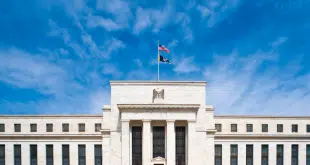Despite a severe drop-off in check use, 61% of consumers continue to write paper checks and continue to face the threat of check fraud, says Abrigo, a financial-crime prevention and risk-management services provider.
Released Tuesday, Abrigo’s survey of 1,059 U.S. consumers also found that 45% of respondents reported being a victim of financial fraud, and of them 17% experienced check fraud.
Of this group of check-fraud victims 51% had been targeted two or more times. Sixty percent of small business owners said they had two more check-fraud instances. This happened as overall check use dropped from 18.1 billion checks written in 2018 to 11.2 billion in 2021, according to the Federal Reserve’s 2022 Payments Study, which is completed triennially.

Check use may have decreased, but criminal activity with the payment instrument remains a big issue.
“In the past, we didn’t see this much check washing or wire-transfer fraud. That has all changed. Stealing checks from businesses or mailboxes, using technology to disguise your voice on the phone—it’s more than one person can handle,” Freddie Deutsch, executive vice chair of Signature Bank of Georgia, says in an Abrigo statement.
While check use is highest, at 77%, among consumers 65 years or older, younger generations still use them. Of those between 18 and 24, 59% use checks, as do 57% between 25 and 34. Sixty percent of consumers between 35 and 44 use checks, and so do 48% of those aged 45 to 54. Of those between 55 and 64, 61% use checks.
In related news, DataVisor Inc., a fraud and risk platform, says it is integrating the Check Fraud Defender service from Mitek Systems Inc. The technology incorporates machine learning and real-time data analysis tools to help financial institutions counter check fraud.
The Mitek service uses artificial intelligence and computer vision to detect check fraud in real time by visually evaluating more than 20 check attributes.
DataVisor says its customers will be better able to detect and prevent check fraud with the integrated service. Threats include check kiting, remote deposit capture fraud, check washing, counterfeit checks, and identity theft.







